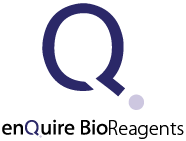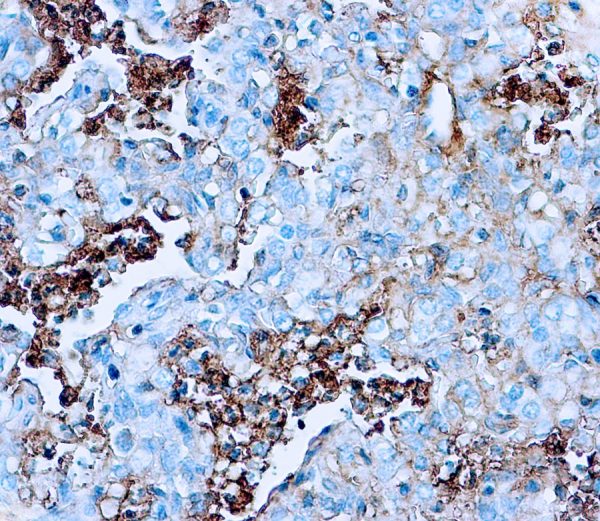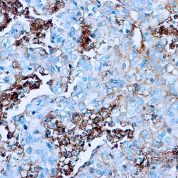Antibody (Suitable for clinical applications)
Sample Type: FFPE Patient Samples.
Tested Applications: IHC. Approved for In Vitro Diagnostic Procedures on FFPE tissues. For tissue collection recommendations, please see datasheet sent with product.
Application Notes
| Specification | Recommendation |
|---|---|
| Recommended Dilution (Conc) | 1:50-1:100 |
| Pretreatment | No Pretreatment Required |
| Incubation Parameters | 30 min at Room Temperature |
Prior to use, inspect vial for the presence of any precipitate or other unusual physical properties. These can indicate that the antibody has degraded and is no longer suitable for patient samples. Please run positive and negative controls simultaneously with all patient samples to account and control for errors in laboratory procedure. Use of methods or materials not recommended by enQuire Bio including change to dilution range and detection system should be routinely validated by the user.
Clonality: Polyclonal
Anti-Albumin Antibody Clone: Polyclonal
Host and Isotype: Rabbit Undetermined
Recommended Positive Control Sample: Liver
Cellular Localization of Antibody Polyclonal Staining: Cytoplasmic
Buffer and Stabilizer: PBS with 1% BSA and 0.05% NaN3
Antibody Concentration: Lot specific. Plese contact tech support for data.
Immunogen: Purified human albumin.
Storage Conditions: This antibody should be stored refrigerated (2-8°C). This product should not be used past the expiration date printed on the vial.
Albumin Information for Pathologists
Summary:
Most common serum protein. 65K protein produced by ALB gene on #4, by liver (Wikipedia). 50% of total plasma protein content; usual serum concentration of 40 g/L. Binds to water, bilirubin, calcium, fatty acids, hormones (acts as carrier protein), potassium, sodium, and various drugs. Main function of serum albumin is to regulate blood colloidal osmotic pressure.Notable Clinical Features:
Laboratory:. For serum albumin measure, most instrument systems do NOT have satisfactory total-error performance (Arch Pathol Lab Med 2013;137:912). Serum albumin may be a low cost diagnostic marker for tuberculosis in HIV+ patients eligible for antiretroviral therapy (Bioimpacts 2013;3:123). In type 2 diabetes patients with stable angina and chronic total coronary occlusion, increased serum glycated albumin levels are associated with impaired coronary collateral growth (Cardiovasc Diabetol 2013;12:165). Deficiency causes familial dysalbuminemic hyperthyroxinemia (MIM:103600).Limitations and Warranty
This antibody is manufactured in accordance with clinical good manufacturing practices in an ISO13485:2016 certified production facility. It is intended for multiple uses including in vitro diagnostic use and research use only applications. Please see vial label for expiration date. We strive to always deliver antibodies with a shelf life of at least two years.






There are no reviews yet.